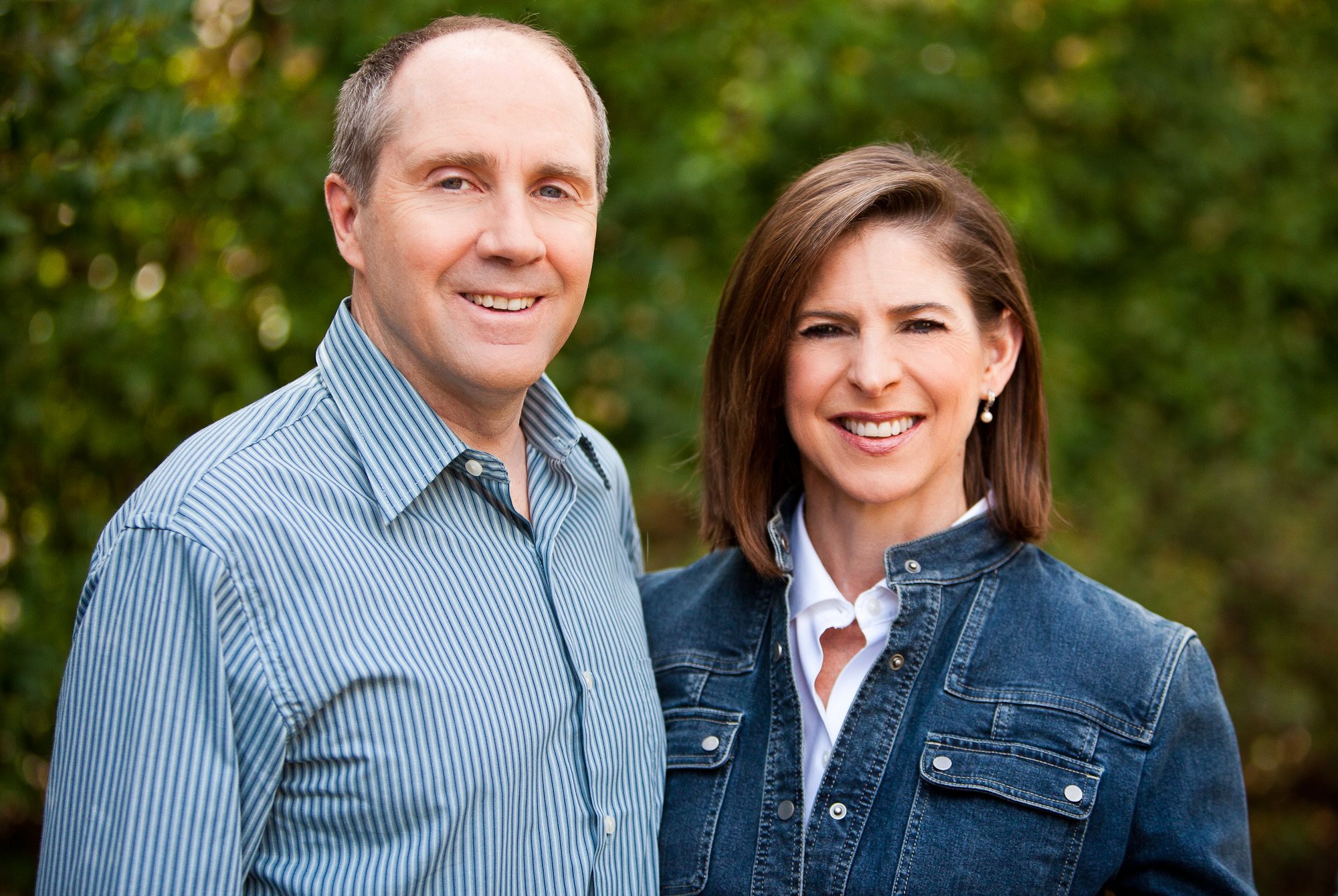TCW Talks to ... Diane Paddison
Diane Paddison's professional career has taught her that many women struggle to make family, career, and faith fit on the same plate. So she's doing something to help. The founder of 4word and author of Work, Love, Pray. Paddison seeks to connect, lead, and support professional Christian women. TCW talked with her about how women can achieve their God-given potential at work and at home.
How has God uniquely equipped you for connecting, leading, and supporting professional Christian women to achieve their God-given potential?
I had the opportunity to be a farm girl, go to the East Coast, get my MBA, then go to work in the commercial real estate business. I ended up in the C-suite of two Fortune 500s and one Fortune 1000 company. During that time I was married, then a single mom with two kids, and then remarried, and now have a blended family with four kids. So I've been in different stages of relationships and can relate to single moms, blended families, and all in between. I knew the whole time there was no way I was doing all this on my own. If it wasn't for my faith through those ups and downs, there is no way I could have done it.
I've had a lot of women come to me and ask, "Can we have coffee?" "Can we talk about how you do this?" "How did you navigate your career when you made more than your spouse?" It was obvious there was a need out there. And I also felt pleasure when I had the opportunity to mentor other women.
So tell us what 4word is all about.
The strategy of 4word is like a three-legged stool: connection, leadership, and support.
We help women connect in three ways: online, through local groups, and in mentoring relationships. We have a website and blogs, and local Facebook groups for women who don't have time to be in a local group. Mentoring is really important too. A LinkedIn survey said 66 percent of women Baby Boomers never had mentors. And then research says you are 56 percent more likely to be promoted from middle management if you have a mentor versus not. We're getting ready to launch our second group of mentoring pairs. Women apply, and we match them with mentors from all over the United States.
We talk about how to balance family, relationships, work, and faith 24/7. We discuss this through books, a blog, TV interviews, radio, and online articles. We also want to advocate for professional women in the faith-based community. We don't want to create something that's already there, so we try to partner with any group that has resources that will help our audience.
For me, writing Work, Love, Pray was secondary to wanting to start an organization that would connect, lead, and support professional Christian women.
In Work, Love, Pray, you encourage professional women to embrace a sense of purpose in their roles. What motivated you to proclaim that message?
I was raised in a family business, so it was kind of in my blood. I just always felt like I was called to be in the workforce. But I found a lot of other women questioning, and their guilt was so heavy. I wanted to write it because there were not very many voices talking about how it's okay to use the gifts God's given you. I love Romans 12:4- 8: we are given different gifts, and God wants us to use them.
So for the professional Christian woman who's juggling faith, family, and career, what are some words of wisdom and encouragement on balancing those competing priorities?
First, get to know yourself. I find a lot of people haven't taken the time to really understand where their priorities are and what their giftedness is. And if you don't understand that first, you can get confused. When I left Harvard Business School and told people I was moving to Tulsa, Oklahoma, to start working as a consultant, they looked at me like I was a loser, because they were all going to New York City, and they were management consultants and investment bankers. But my priorities were my faith first and my family second, and I knew I couldn't do that if I was going to be an investment banker. So first, understand your priorities so your decisions and the culture of the place you work support those priorities, and put yourself in the right role within that organization.
Second, you don't have to do it alone. A lot of times we have a hard time delegating—when we delegate we want them to do it the same way we did it. We need to be okay with them doing it the way they're going to do it.
Third, a lot of times we're afraid to set boundaries. People said to me, "I can't believe you went to your boss at Trammell Crow and told them you would only travel an average of one night a week." I said, "Well, if I wouldn't have, I probably would have left soon." But because we understood that together, and I tracked it, and my family held me to it, it worked for a long time. I was there 21 years. A lot of women are afraid to ask for what they need.
Fourth, say no. Sometimes when we say no it may be to something that's really great but we just have too much on our plate. When we say no, it doesn't always mean it's no forever. It may just be no for right now.
And fifth, you've got to grow your faith like you grow your career. We all know there are times when life falls apart. When I went through my divorce, it was the most broken two years of my life. I don't know what I would have done without my faith. And then in the great times, it's also your faith that keeps you humble and helps you remember that this is not you—this is what God's blessed you with.
How can you recognize when you've crossed a boundary and hurt your family by putting your career first?
Sometimes your family does have to understand you're going to have deadlines and they're going to have to give a little. But then there will be other times when you'll be able to be with them more. The thing you have to be careful of is letting that deadline become normal. You've really got to be sure to push back. My family, my daughter Annie especially, would call me on it. "Mom, put down the cell phone. Turn off your computer." Kids are the best. They're your best critic, and they're always trying to help you stay focused on what's really important.
So is there ever a time to put your career first?
You might be the sole breadwinner for your family, and you're going to need to work to put food on the table. And they've got to understand this is a team effort. "We're in this together." "I need you to pick up some slack and do more chores around the house." If you can do it in a way that shows your commitment to your family and shows the people you work with what's important in your life, it can also be an example in the workplace of Christ. When I wrote Work, Love, Pray, I didn't want it to be only written to those who had two careers and economic freedom. It's written for women who are just trying to figure out how to take care of their family and keep everybody fed.
How can women be intentional about keeping family first and setting that priority?
Setting the rules of the game is really important. We had this deal: When Mom's at work, if it's an emergency, call me on my cell phone. If it's not an emergency, text or e-mail me. I'm going to try to be home at six every night unless something comes up, and I'll tell you ahead of time. And when I come home at six, and we all have dinner together, all my technology is going to be shut off. Having these agreed-upon practices tells them they really are first.
One of the things that I struggled with as a single mom with two kids was trying to figure out how to have alone time with each of them. So I started once a year having a special weekend with each of them, and we still do it to this day. When Chris and I got married, he started doing that with the kids too. When we talk about memories, these weekends are what they talk about. Now that our kids are 19 through 25, we plan six months ahead when all six of us are going to be together again.
So where does church fit into the mix?
I feel strongly that you should be part of a church family. It's one of the principles of 4word, that this organization doesn't replace being part of a church family. However, I do think there are different seasons in our life, and the reality is we're going to live probably till we're 80. Childrearing is typically 20 years of that. So there are probably 40 years before we have kids and after they're gone when we have more time. I think we need to feel more comfortable with giving when we're in the season of being able to give, and comfortable giving where our gifts are. Don't force yourself to give where your gifts aren't. My gifts are not to be working in the nursery. But if my church family wanted me to, I would love to be involved with a professional women's ministry, bringing 4word to my church. There's a time for everything, Ecclesiastes 3:1–11. It's not like we have to do everything all at once.
Amy Simpson is the managing editor of marriage and parenting resources for Today's Christian Woman and the editor of GiftedForLeadership.com. She is the author of Troubled Minds: Mental Illness and the Church's Mission. Connect with Amy at amysimpsononline.com.
Read more articles that highlight writing by Christian women at ChristianityToday.com/Women
 Read These Next
Read These Next

 My Little Peace of HeavenPreacher, homemaker, cheesemaker—whatever our vocations, with God, we have the job opportunity of a lifetime—to help God make shalom.
My Little Peace of HeavenPreacher, homemaker, cheesemaker—whatever our vocations, with God, we have the job opportunity of a lifetime—to help God make shalom. How to Build a Strong Blended Family3 practical ideas for stepmoms
How to Build a Strong Blended Family3 practical ideas for stepmoms
 Masturbation: Is It Wrong?Yes . . . and no. Guidelines for sorting out a complicated question.
Masturbation: Is It Wrong?Yes . . . and no. Guidelines for sorting out a complicated question.








 Homepage
Homepage

